#john atkinson
Explore tagged Tumblr posts
Text

#art#artwork#art observations#viewer#historian#dealer#critic#art curator#art gallery#art exhibition#opinions#painting#visual arts#john atkinson#wronghands#webcomic#humor
30 notes
·
View notes
Text

John Atkinson, Wrong Hands - Musical Chairs
25 notes
·
View notes
Text
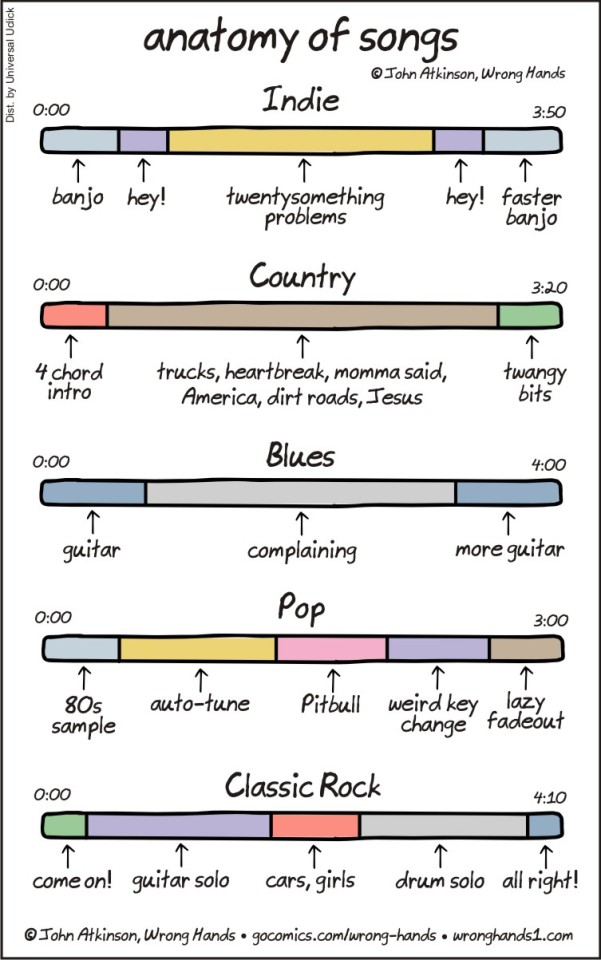
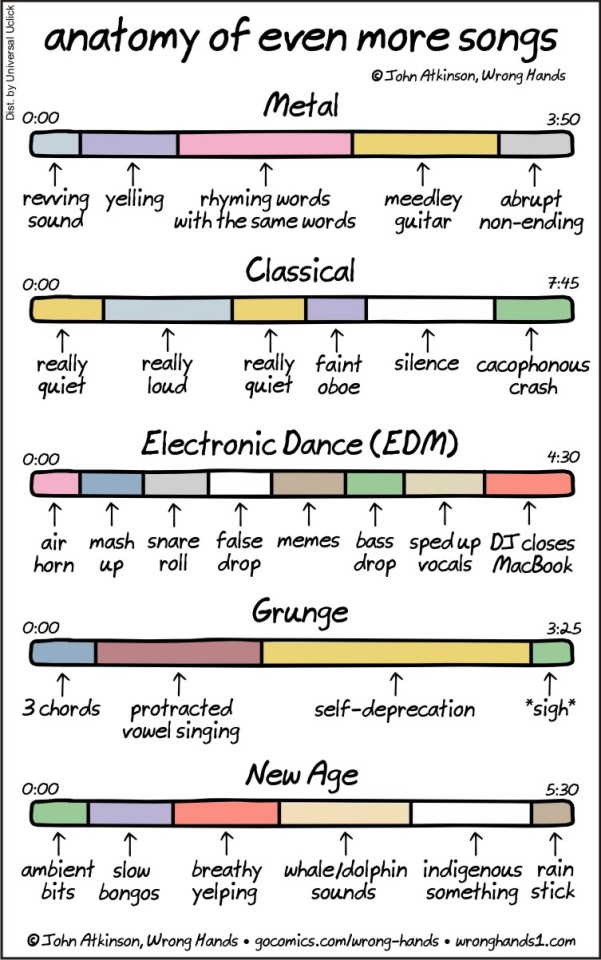
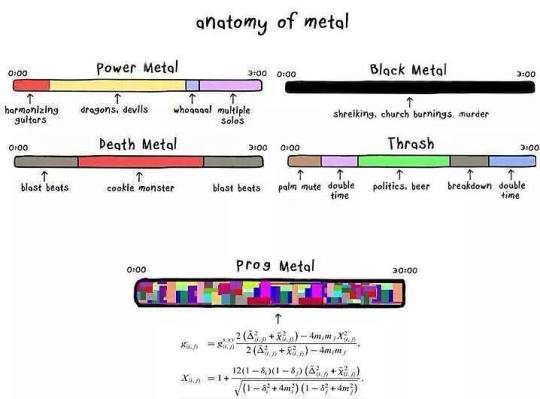
i just re-discovered these ! and I stumbled upon a new one, which is apparently not from John atkinson...
124 notes
·
View notes
Text

8 notes
·
View notes
Text

Falling Angel
#art#sculpture#angel#mythology#goddess#religious art#religion#pagan#paganism#ancient greek#ancient greece#europe#european#greek mythology#sword#hourglass#angels#wings#gods#folk#horror folk#John Atkinson#Ron Smerczak#siete#Spencer Banks#hands#feet#photography#the substance#aesthetic
2 notes
·
View notes
Text
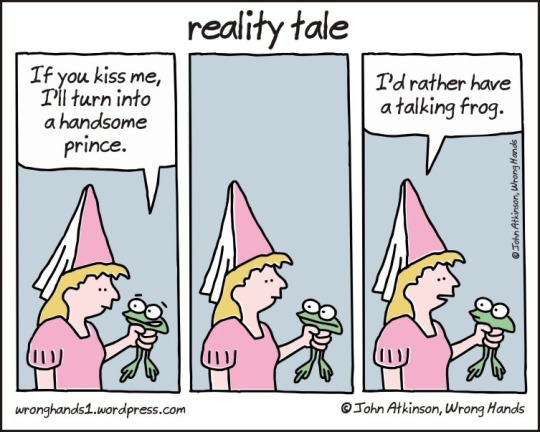
1 note
·
View note
Text
Dust Volume 9, Number 3
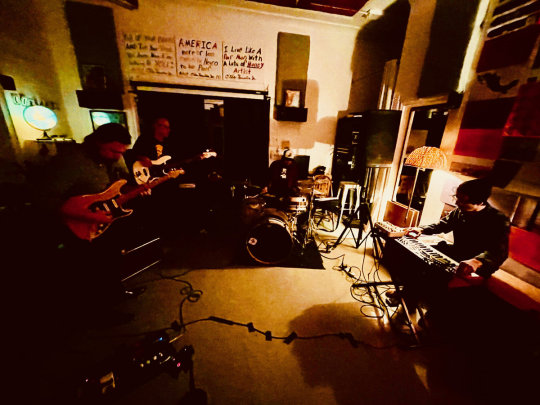
Emergency Group
As AI takes over the creative professions, it may seem pointless for actual, struggling human beings to sit down to listen to music made by other human beings, to think about what they hear and to string together sentences about how they felt about that music and what it means. But, in a sense, Dusted has always been a bit pointless, as have many of the under-heard, under-loved musics we follow. Still, since there’s no money in it, we can’t be starved out. We may not win an us-against-the-machines battle, but there’s no reason to surrender. And so, this month, we gather our low-tech resources to consider another batch of excellent, under-the-radar releases from folk artists and metal thrashers, jazz improvisers and pop craftspeople. Contributors include Bill Meyer, Ian Mathers, Jennifer Kelly, Justin Cober-Lake, Jonathan Shaw, Tim Clarke, Bryon Hayes, Margaret Welsh and Andrew Forell—not a robot in the bunch.
Joseph Allred — What Strange Flowers In The Shade (Feeding Tube)
What Strange Flowers In The Shade by Joseph Allred
We’ll be dealing with the pandemic’s fallout for years to come, but some consequences are lined with silver. Locked up in a grad school apartment, Joseph Allred spent a lot of time getting acquainted with the less-handled items in their sizable collection of instruments. Best known as a mystical acoustic guitarist of the Takoma school and a spiritually astute singer, they also have a lengthy, if less documented, history of appreciating and performing plugged-in music. What Strange Flowers Grown In The Shade arose from Allred’s deep dive into the delights of effects pedals and a Fender Jaguar guitar. Bolstered by remote contributions by the Rolin-Powers Duo, Magic Tuber Stringband, and others, Allred set the sound-mixer for slow stir and the spotlight for the center of the resulting thick swirl. The outcome sounds a bit like Mike Cooper might if you packed him off to a cold, damp clime with nothing to play but choral recordings, and he embraced the circumstances (don’t try this at home, folks; Cooper would be more likely to embrace your neck with an asphyxiating grip if you did him such a disservice).
Bill Meyer
John Atkinson — Energy Fields (AKP Recordings)
youtube
It may have taken John Atkinson just two weeks on a residency in Wyoming (surrounded by the sounds of coal mines, wind farms, oil refineries, and hydropower plants) to get all of the field recordings he microedited into the four tracks that make up Energy Fields, but it took him another two years to figure out how to stitch them together. In that time, his longstanding interest in both the manipulation of found/sourced sound and in climate issues haven’t exactly dated. On the industrial rumble of “Black Thunder” and the galvanizing drones of “Spiritual Electricity” you can practically see the extractive machinery Atkinson was surrounded with, whereas the record’s second half moves to a calmer, more meditative and even hopeful place. The results are evocative and sometimes troubling soundscapes deeply rooted in our current ecological moment.
Ian Mathers
Emergency Group — Inspection of Cruelty (Island House)
Inspection Of Cruelty by Emergency Group
Two side-long slabs of fusion-y free improvisation are led by long-time Dusted favorite Jonathan Byerley (Plates of Cake and Anti-Westerns), with seasoned jazz players Robert Boston and Andreas Brade in tow. WFMU DJ, writer and bassist Dave Mandl rounds out the foursome. A 1970s futuristic cool hangs over the whole enterprise, in its chugging rhythms, its radiant runs of electric keyboards, its motorific jams. You are meant to sniff out hash-scented whiffs of Silent Way into Jack Johnson-era Miles Davis (despite the lack of brass) in all this, but Return to Forever is a closer match, and maybe CAN, too. There’s an underpinning of jazz, but it wigs way the fuck out from there. I’d give the edge to urgent, driving “Part 1,” nearly half an hour long but constantly evolving, ever fascinating. “Part 2” is shorter, but not by much, but also less visceral, more of a head piece. It dozes deep into a psychedelic dream, where fairy dust keyboard notes drift down from pastel skies, sparkling all the way, and deep pulses of bass power the machinery that makes the illusion work. I’ve never loved keyboard-heavy fusion but I like this, go figure.
Jennifer Kelly
Tomas Fujiwara's Triple Double — March On (self-released)
March On by Tomas Fujiwara's Triple Double
When percussionist Tomas Fujiwara convened his odd sextet a few years ago for their second album (2020's March), he had them record some extra material intended as segues between tracks. He decided the session warranted its own album, and new digital-only release March On centers on the 30-minute titular improv. The freedom of the set should suit fans of the artists involved (including Gerald Cleaver, Mary Halvorson, Brandon Seabrook, Taylor Ho Bynum and Ralph Alessi). Each of those musicians write and perform surprising, free-sounding music, but with careful composition structuring the adventures more carefully than might be expected. “March On” puts them in full improv mode, a task that succeeds largely because they've learned to interact so well with each other in a variety of ensembles over the past decade or so.
The Triple Double structure still holds, offering surprises in one level simply by changing configurations. The band's name suggests basketball, and the group plays a never-stagnating motion offense. We move from a horn duet to a guitar battle to a drum-guitar-trumpet trio with ease. Given the crowded space, each musician stays out of the others' way while still finding moments to become a focal point. The album closes with Halvorson and Seabrook briefly partnering for “Silhouettes,” 45 seconds of weird tone an unsettling conversation. It closes the album well, hinting at more mysteries within an ongoing conversation.
Justin Cober-Lake
Full of Hell and Primitive Man — Suffocating Hallucination (Closed Casket Activities)
Suffocating Hallucination by Full of Hell & Primitive Man
A glib assessment of this collaboration between noisy grind band Full of Hell and the doomy monster that is Primitive Man might note: it’s 26 seconds of Full of Hell and 34 minutes of Primitive Man. For sure Suffocating Hallucination is dominated by the agonizing assaults of volume associated with Primitive Man’s excoriating, magma-paced music. But folks should recall just how adventurous the last few Full of Hell records have been, replete with excursions into hair-raising harsh noise and muscular hardcore. Open your ears to the textures of the record’s first two tracks (the sublimely titled “Trepanation for Future Joys” and the aptly titled “Rubble Home”) and you’ll hear both bands at work, responding to each other’s force and fury. Is that good? Depends on your appetite for unhappiness. This reviewer is compelled by the record’s final 18 minutes, in which the haunted factory sounds of “Dwindling Will” leach into the perversely magisterial “Tunnels to God.” As novelist Stephen Wright once observed, “If you can’t ascend, you might as well descend.” This music will get you there.
Jonathan Shaw
Drew Gardner — The Return (Astral Spirits)
The Return by Drew Gardner
Folks following American “don’t call it primitive” guitar music have likely noted Drew Gardner’s redoubtably picking in Elkhorn, where he handles the usually-electric, six-string side of their bases-covered attack. Most folks don’t get to sound so sure in a minute, and it turns out that Gardner is a man with a past. He has been multi-instrumentalist since the 1980s, and during the mid-1990s he was an active participant in San Francisco’s free jazz scene. Around the same time, saxophonist John Tchicai had a teaching gig in Davis CA; he retained Gardner as a drummer, and when Gardner had a chance to record at Guerilla Euphonics in 1995, he returned the favor. Also on board were Church of John Coltrane alto saxophonist Roberto de Haven and, on one track, Marco Eneidi, also on alto. Gardner and bassist Vytas Nagisetty stoke the furnace, alternating a full head of steam with more judiciously applied rumblings, and the twinned reeds give Gardner’s themes a distinctly pre-electric Ornette feel. No doubt there’s a good reason why this music didn’t come out at the time, but it wasn’t on account of the music’s quality.
Bill Meyer
Hourlope — Three Nights in the Wawayanda (self-released / Tymbal Tapes)
Three Nights in the Wawayanda by Hourloupe
Hourlope is a collaboration between Anar Badalov and Frank Menchaca, and Three Nights in the Wawayanda is the third part of an ambitious trilogy that began with Future Deserts, continued on Sleepwalker, and reaches its fantastical culmination here. Hourlope pair elusive electronic backing with Mechaca’s measured spoken word delivery, and the results are frequently beguiling. It feels like music from another time, both harking back to the origins of ambient electronica in the 1990s and reaching forward to imagine fresh new musical forms. The album’s finest moments are the more abstract, beatless pieces, such as the Fennesz-esque “Thumper,” and centerpiece “Green Navy/Rain,” a stunningly evocative two minutes in which Menchaca’s words perfectly complement the eerie atmosphere of the music.
Tim Clarke
Brett Naucke — Cast a Double Shadow (Ceremony of Seasons)
Cast A Double Shadow by Brett Naucke
Wine, beer and spirit clubs are not new, but the Asheville-based VISUALS winery is taking the concept beyond liquids with its Ritual of Senses club. It’s pairing rare, locally fermented products with components meant to delight the other senses. Packages are meant to arrive at the solstices and equinoxes and include a seasonally appropriate auditory component. Brett Naucke’s Cast a Double Shadow is included in the club’s winter solstice edition. Having spent most of his life near Chicago, the sound artist is now based in Asheville, hence his participation. Naucke blends a sonically diverse array of genetic material into a recombinant organism well-suited to survive the longest and coldest wintery night. Icy synths and brittle samples are bolstered by a lushness that carries a kernel of warmth inside of it. Bubbling arpeggios create the illusion of motion, and since a moving liquid cannot freeze, Naucke’s compositions remain lively amid the pervasive frostiness of the hibernal season. Those lucky enough to pair these ice-melting sounds with VISUALS’ liquid accompaniment will surely enjoy a synaesthetic intoxication. Imbibe responsibly, folks.
Bryon Hayes
The Natural Lines — S-T (Bella Union)
youtube
Matt Pond may not be Matt Pond PA anymore, but he’s making the kind of clever, earnest indie rock as always, with some of the same people, notably Chris Hansen, his longtime guitarist and co-producer. This self-titled full length follows on the 2022 EP First Five, revisiting pensive, string-soothed “Spontaneous Skylights” and adding ten new warbly gems. “Monotony” feels like a COVID song, specifically a song about a musician’s experience of COVID, its clamped guitar stuttering as Pond sketches adapting to a smaller world. “When you start to think about the way you breathe, it doesn’t mean you believe in monotony,” he observes in a wavering voice that struggles to remain upbeat. But the music swells and with it, Pond finds his footing. “Climb the drums to feel the fall, stab the strings to feel anything,” he sings. Later, “A Scene That Will Never Die” turns moody introspection into bell-clear, chiming triumph. Pond’s voice is always bruised, rueful, real, but the music surges in waves of joy. If you’re still climbing out of the last couple of years, take heart. Matt Pond is, too, and he’s got a new band and an album to help.
Jennifer Kelly
No Cosmos — you iii everything else (Lighter Than Air)
You iii everything else by No Cosmos
Montrealean jazz trumpet player Scott Bevins inhabits a fluid convergence of jazz, electronics and R&B in this eight-song debut, drawing out languid, lucid melodies in brass and roughing them up with a battery of percussion from drummer Kyle Hutchins. Bright, reiterative bell-tones frame “kindergentlepatient” in Reichian pointillism, but the trumpet rings out a long-noted, clarion melody, a little echo clinging to it like a shadow, flickering underneath. “Almost Lost You,” an early single, slaps a slinky downtempo beat onto musing post-Miles cool, and floats traceries of soul vocals over its slouching groove. Less overtly accessible, but ultimately more rewarding, “0 to me to me to me,” ruptures its Rhodes-chilled serenity with continual explosions of drumming. I like it best when Bevins lets the chaos slips into his stylized precision.
Jennifer Kelly
Party of the Sun — Capsule III EP (Trailing Twelve)
Capsule III by Party of the Sun
Backwoods psychedelia springs up like mushrooms in the wilder parts of northern New England. Party of the Sun, an acid folk trio from the Monadnock Region (where yrs truly also resides), made these gently expansive tunes on a working sheep farm, following in the muck crusted footsteps of MV+EE, Sunburned and Akron/Family. Akron/Family, admittedly, hailed from New York, but the resonance is strong anyway, especially to that first slow-burning album, where the creak of rocking chairs, the rumble of thunder, seeped into translucent, transcendent melody. Here, “See Space” is all murmur-y, sunlit radiance, guitar and keyboards picking out glittering patterns under Ethan McBrien’s soft, considering tenor. “Forget Me Knot” coalesces out of a cloud of buzzing sonics, warm, widely spaced guitar chords emerging like the emerging light of morning. Harmonies swell, in a natural way, and drums thump up a climax, as the song balloons from quiet contemplation to something epic. “Smoke Bush,” with its subtle thread of female harmonies, eddies and swirls and lilts like a lost 1960s folk off-take. These tunes grow naturally out of reverie and solitude, but they don’t stay that way. They invite you in.
Jennifer Kelly
Anastassis Philippakopoulos — piano1 piano2 piano3 (Edition Wandelweiser Records)
youtube
2020 was a rotten time for too many things to count, but it was a great time to stop and settle into some new music. That opportunity could not have been on anyone’s mind when Elsewhere Music released Anastassis Philippakopoulos: piano works mere weeks before the lockdowns began, but it was a perfect response to the moment. The Greek composer’s compositions, as performed by Melaine Dalibert, were distillations of reflection and deliberate action. This album, which contains earlier works performed by a different pianist, exchanges pith for elongation, but in other respects it’s a continuation of Philippakopoulos’s poetic dialogue between profound silence and unassumingly beautiful sound. Each note bears the weight of consideration, as though the composer carried out a moral inventory before committing to its placement in moderate proximity to another one, and the restrained touch of Serbian pianist Teodora Stepančić honors the music’s austerity.
Bill Meyer
Sif — Darkstalker (Self-released)
Darkstalker by Sif
Nuthin’ fancy here, folks, just 25 minutes of satisfying blackened doom. Richard Murphy has been making records as Sif for a few years, and the project has gotten progressively heavier, shifting from bummer drone meditations to this current thumping and crunching incarnation. The tape’s opening track “Kingseeker” slowly morphs from a repetitive churn to a sludgy groove, which situates the sounds in Louisiana’s long metal tradition (just what goes on down there?). It’s beautifully paced and just recalcitrant enough to insist on returning to the opening riff, rather than seeking any sort of catharsis. The title track spends some time foregrounding Murphy’s chops on bass, with the sort of heaviosity-worship one associates with Conan. Tremolos and more varied textures eventually cut into the song, with some heroic intent. But mostly Murphy wants to wield tone like a mace to your forehead. Hit me again, man. It’s good.
Jonathan Shaw
Ultrabonus — El Gimnasio en Casa (Kitchen Leg)
EL GIMNASIO EN LA CASA VOL.1 by ¡ULTRABONUS!
Recorded a lifetime ago (well, in 2020, same difference) and released this past December, the unprocessed immediacy of El Gimnasio en Casa bears no left-in-the-can staleness. Berlin-based, multi-national four-piece Ultrabonus offers brief, melodic garage-punk tunes delivered with crisp, swaggery style by Argentina native Ignatz B. The title charmingly translates to “the home gym,” and the sunny lo-fi psychedelia is appropriately threaded through with calisthenic noodling. Nothing groundbreaking here, but Ultrabonus does what it does very well. Fun, cool stuff.
Margaret Welsh
99Letters — Makafushigi (Disciples)
Makafushigi by 99LETTERS
Japanese producer Takahiro Kinoshita’s companion piece to his 2022 Kaibou Zukan (Anatomy Picture Book) takes his concept of gagaku techno into a seamy, industrial and far darker direction. Makafushigi (Mystery Tape) is, like its predecessor, built on samples of traditional instruments and vocal styles used in Japanese Imperial Court music. Introduced from Chinese and Korean sources, Gagaku music has continued under Imperial patronage since the 10th century. As 99Letters, Kinoshita fuses these ancient sounds with modern electronic music in ways that are as malevolent as the demons of mythology and as sinister as the underbelly of organized crime and ultranationalism in contemporary Japan. The tracks on Makafushigi are washed in a seamy mix of grit and clamor, a grim, grimy world of back alleys, dingy bars and low-tech manufacturing. It’s a haunted netherworld as alienating as it’s compelling. Fans of Haxan Cloak & Demdike Stare will find much to like here.
Andrew Forell
#dust#dusted magazine#joseph allred#bill meyer#john atkinson#ian mathers#emergency group#jennifer kelly#tomas fujiwara#justin cober-lake#full of hell#primitive man#jonathan shaw#drew gardner#hourlope#tim clarke#brett naucke#bryon hayes#the natural lines#no cosmos#party of the sun#antastassis philippakopoulos#sif#ultrabonus#margaret welsh#99letters#andrew forell
5 notes
·
View notes
Text
youtube
RMAF 2018 - 50 Year of Being an Audiophile: John Atkinson
#John Atkinson#Stereophile#Audiophile#Recommended#albumcover#vinylcollector#editor#music#journalist#solidstate#tube#amplifier#Writer#poweramp#preamp#highend#mood#headphone#hifi#audio#review#vinylcollection#vinyl#record#vinyljunkie#vintage#art#Audio review#vinylcommunity#vintageaudio
0 notes
Text

Iris (detail) by John Atkinson Grimshaw (1886)
9K notes
·
View notes
Text

#christmas#hallmark#holidays#movies#plot generator#plot#television#tv#wronghands#john atkinson#webcomic#humor#funny
253 notes
·
View notes
Text
🎶🎵🎶🎵🎶🎵

242 notes
·
View notes
Text

Midsummer Night or Iris (John Atkinson Grimshaw, 1876)
8K notes
·
View notes
Text

29 notes
·
View notes
Text

Under the Moonbeams, John Atkinson Grimshaw, 1887
Oil on board 18 x 14 ⅛ in. (46 x 35.9 cm)
#art#painting#john atkinson grimshaw#19th century art#19th century#1880s#night scene#street scene#oil#english#british#victorian art#100 notes#250 notes#500 notes#750 notes
1K notes
·
View notes
Text

Pretty much sums it up.
0 notes
